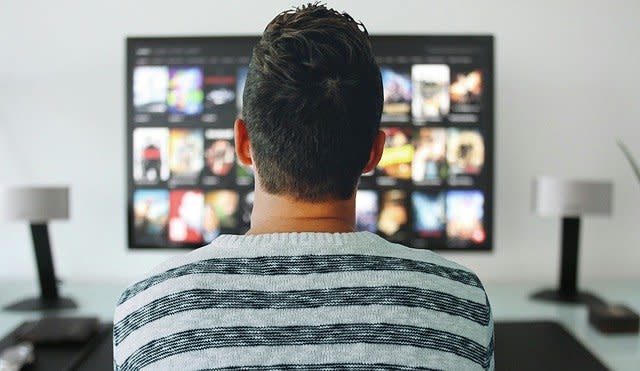Bringing OTT platforms under government regulations: What India and other countries are doing

As over the top (OTT) streaming service provider, Hotstar prepares for the launch of Disney plus in India, on March 29, 2020, the streaming platform has been criticised for blocking an episode of the comedy talk show “Last Week Tonight With John Oliver,” by host John Oliver, which was critical of Prime Minister Narendra Modi.
Hotstar, along with Jio, SonyLiv, Network 18 and Eros has set up an adjudicatory council, called the Digital Content Complaint Council (DCCC), to moderate content on OTT platforms. Netflix has bailed out of the DCCC, set up by the companies to avoid coming under government censorship.
As per media reports, the Information and Broadcasting Ministry had given OTT platforms 100 days to finalise a code of conduct and to set up an adjudicatory body. While there will not be any censorship from the Government, it expects players to come up with better categorisation of content. The Government had also cited the example of China where streaming sites have accepted conditions for providing content on OTT platforms.
Indians, themselves, are open to regulation of OTT platforms, as per a survey. 57 per cent of Indians believe that censorship of streaming platforms such as Netflix, Hotstar and Amazon Prime Videos are required, as revealed the survey by YouGuv.
How other countries are regulating:
While OTT platforms have been largely unregulated, a number of countries have tried to impose restrictions; in some cases, these platforms have also been self-regulating to avoid censorship.
As per a report titled Environmental Social Governance by Netflix, Singapore is the streaming platform’s most censored market as it has the highest number of pull out requests made by any country. Five shows were taken down in Singapore – the highest among all the countries that requested for pull-outs.
Singapore’s media regulatory body, the Infocomm Media Development Authority (IMDA), has issued a set of directives for streaming platforms and on-demand video services which requires them to classify their content as G: for General, PG: for Parental Guidance: PG 13 for Parental Guidance for children under 13, NC 16 for not for children under 16, M 18, which is restricted to audience above 18 and R 21, restricted to audience above the age of 21. It also requires service providers to further display ratings and the theme including notifying if there is any violence, nudity, language, drug use or horror being depicted.
Singapore also requires that the programmes hosted by the service providers comply with the laws of the country, and not contain any material that can be inflammatory or undermine national or public interest or national or public security.
Saudi Arabia is another highly censored market. On January 1, 2019, Saudi Arabia pulled out an episode of the comedy show Patriot Act starring Hasan Minhaj, which was critical of Crown Prince Mohammed bin Salman. Minhaj had devoted an episode critical to the Saudi regime after the murder of journalist Jamal Khashoggi. While Netflix complied with the request to pull out the show, it was criticised widely for its actions. According to Saudi Arabia, the episode violated the country’s anti-cybercrime laws, the authority for all things digital, which is used to censor internet activity.
While streaming sites such as Netflix and Amazon Prime Video are banned in China, local sites such as Tencent Video, Youku and iQIYI run the OTT market. These three are controlled by the country’s main internet companies, Baidu, Alibaba and Tencent. In a bid to promote local content, China’s National Radio and Television Administration (NRTA) imposes regulations on the amount of foreign content that these platforms can stream. It has also been getting streaming platforms to reduce locally produced period dramas to 40 per cent of the content, as they have been accused of encouraging negative traits such as propagating a luxurious lifestyle and glorifying emperors while overshadowing present heroes.
In Indonesia, Telekom Indonesia, the state-owned telecom provider, has blocked Netflix since 2016, with the justification being that the streaming platform has not complied fully with Indonesian regulations that govern media content. As per the telecom provider, the streaming platform exposes users to violence and pornographic content, which is prohibited under Indonesian laws. Netflix has, however, partnered with other providers such as XL Axiata, Hutchinson 3 and Smartfren to provide streaming services in Indonesia.
Indonesia has strict anti-pornography laws which mandate digital platforms to censor any type of nudity and companies that violate them have been imposed with temporary bans. There had also been discussions over whether the Indonesian Ulema Council, Indonesia’s top Muslim clerical body, will be issuing a fatwa against Netflix and similar streaming platforms in the country.
Last year, Turkey granted its radio and television watchdog, the Turkish Radio and Television Supreme Council sweeping oversight over online content, which includes streaming platforms as well. Under a new regulation, all online content providers will be under the watchdog’s supervision. The regulation also mandates that all international streaming companies and online TV networks establish local companies, open local offices in Turkey, and purchase government licenses which cost over USD 17,000. Companies that operate without licenses are at the risk of being shut down. As per Turkish authorities, this is to protect national security and moral order inside the country.
The National Broadcasting and Telecommunications Commission of Thailand launched an attempt to regulate OTT and similar platforms, in April 2017. It suggested bringing streaming platforms under an operating licence framework while also making them liable for illegal content. OTT platforms were also given a deadline to register with authorities, failing which they could face difficulties while doing business in Thailand. This, however, did not take off and a 2019 attempt at regulations was met with much backlash, forcing the Commission to abort the plan. OTT platforms, however, need to comply with laws which relate to each type of content, such as the Computer Crimes Act and Copyright Act.

 Yahoo Finance
Yahoo Finance